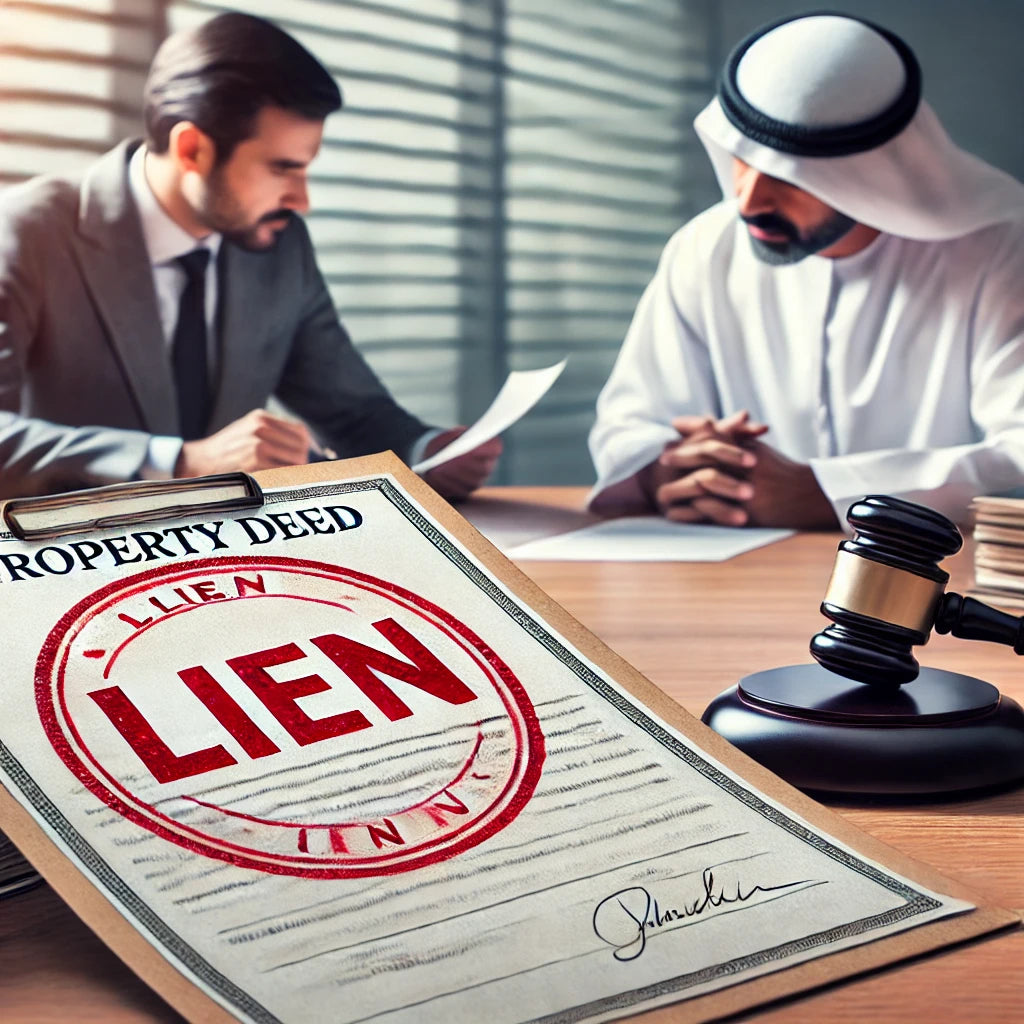
Understanding and Resolving Issues Involving Liens: Legal Solutions in the UAE
Liens can be a significant concern for property owners and buyers in the United Arab Emirates (UAE). A lien is a legal claim or right against a property, typically used as security for a debt or obligation. While liens are a common legal tool, they can lead to complications in property transactions, ownership rights, and financial stability if not managed correctly. This blog will delve into the issues involving liens, their impact on property rights, and the legal solutions available to resolve disputes in accordance with UAE law.
1. Understanding Liens and Their Impact
A lien grants a creditor the right to keep possession of a debtor’s property until the debt is paid. In the context of real estate, liens can be placed on a property due to unpaid debts, such as mortgages, construction costs, or legal judgments. Understanding the types of liens and their potential impact is essential for property owners and buyers.
-
Types of Liens: In the UAE, liens can be categorized into several types, including mortgage liens, contractor’s liens, and judgment liens. Each type of lien serves a different purpose and has varying implications for property owners.
-
Mortgage Liens: A mortgage lien is placed on a property by a lender as security for a home loan. If the borrower defaults on the loan, the lender has the right to foreclose on the property to recover the debt.
-
Contractor’s Liens (Mechanic’s Liens): Contractors or builders may place a lien on a property if they have not been paid for work completed. This lien ensures that contractors can recover payment for their services before the property can be sold or refinanced.
-
Judgment Liens: A judgment lien is the result of a court ruling that requires the property owner to pay a debt. If the debt is not paid, the creditor may place a lien on the owner’s property, which must be satisfied before the property can be sold.
-
-
Impact on Property Rights: Liens can significantly impact property rights, limiting the owner’s ability to sell, refinance, or transfer the property. Potential buyers may be reluctant to purchase a property with an existing lien, as they may become responsible for settling the debt.
2. Common Issues Involving Liens
Liens can lead to various legal and financial issues, particularly if they are not addressed promptly. Here are some common problems property owners and buyers may encounter:
-
Undisclosed Liens: One of the most significant risks in property transactions is the existence of undisclosed liens. If a buyer unknowingly purchases a property with a lien, they may be forced to pay off the lien to clear the title.
-
Disputes Over Validity: Disputes can arise over the validity of a lien, particularly if the debt has been paid or if the lien was placed on the property without proper legal grounds. Invalid liens can cloud the property’s title, making it difficult to sell or refinance.
-
Priority of Liens: In cases where multiple liens exist on a property, determining the priority of each lien is crucial. The priority determines the order in which creditors are paid from the proceeds of a sale. Disputes can occur when creditors disagree on the priority of their liens.
-
Foreclosure Risks: If a lienholder decides to enforce their lien through foreclosure, the property owner risks losing their property. Foreclosure can be initiated by mortgage lenders, contractors, or any creditor with a valid lien on the property.
3. Legal Solutions for Resolving Lien Issues
Resolving lien issues in the UAE requires a clear understanding of the legal framework and the available remedies. Here are some legal solutions for addressing lien-related disputes:
-
Title Search and Due Diligence: Conducting a thorough title search before purchasing a property is crucial to uncover any existing liens. This process helps buyers avoid purchasing properties with hidden liabilities and allows them to negotiate the removal of liens before closing the deal.
-
Negotiating Lien Settlements: If a lien exists on a property, the owner or buyer can negotiate with the lienholder to settle the debt and remove the lien. Settlement agreements should be documented in writing and should include a formal release of the lien once payment is made.
-
Disputing Invalid Liens: Property owners can challenge the validity of a lien if they believe it was placed improperly or if the debt has already been satisfied. In such cases, it may be necessary to file a legal action to have the lien removed. A qualified lawyer can assist in preparing the necessary legal arguments and documentation.
-
Foreclosure Defense: If a lienholder initiates foreclosure proceedings, the property owner may have legal defenses available. These defenses could include disputing the amount owed, challenging the lien's validity, or negotiating a repayment plan to avoid foreclosure.
-
Lien Priority Disputes: In situations where multiple liens exist, resolving priority disputes is essential. The UAE’s legal system follows specific rules for determining lien priority, often based on the date the lien was recorded. Legal counsel can help navigate these disputes and ensure that creditors are paid in the correct order.
-
Release and Discharge of Liens: Once a lien has been satisfied, it’s crucial to obtain a formal release or discharge of the lien from the lienholder. This document should be recorded with the appropriate authorities, such as the Dubai Land Department or Abu Dhabi Municipality, to clear the property’s title.
4. Protecting Your Property Rights
Whether you are a property owner, buyer, or investor, protecting your property rights in the UAE involves proactive measures to manage lien-related risks. Here are some tips for safeguarding your interests:
-
Seek Legal Advice: Engaging a lawyer with expertise in UAE real estate law is essential when dealing with liens. A legal professional can guide you through the complexities of lien disputes, help negotiate settlements, and represent you in court if necessary.
-
Regularly Review Property Records: Property owners should periodically review their property records to ensure no unexpected liens have been placed. This can help catch potential issues early and allow for prompt resolution.
-
Include Lien Clauses in Contracts: When entering into property transactions or development contracts, include clauses that address the handling of liens. This could include warranties against undisclosed liens or agreements on how liens will be resolved before the transaction is completed.
-
Insurance: Consider obtaining title insurance, which can provide coverage against undiscovered liens and other title defects. Title insurance is an additional layer of protection for buyers and lenders, ensuring that they are not financially impacted by hidden liens.
Conclusion
Liens can present significant challenges in the UAE’s real estate market, affecting property ownership, transactions, and financial stability. Understanding the nature of liens, the common issues they present, and the legal solutions available is crucial for protecting your property rights. Whether you’re dealing with undisclosed liens, priority disputes, or foreclosure risks, seeking legal guidance and taking proactive measures can help you navigate these challenges effectively and ensure your interests are safeguarded under UAE law.

